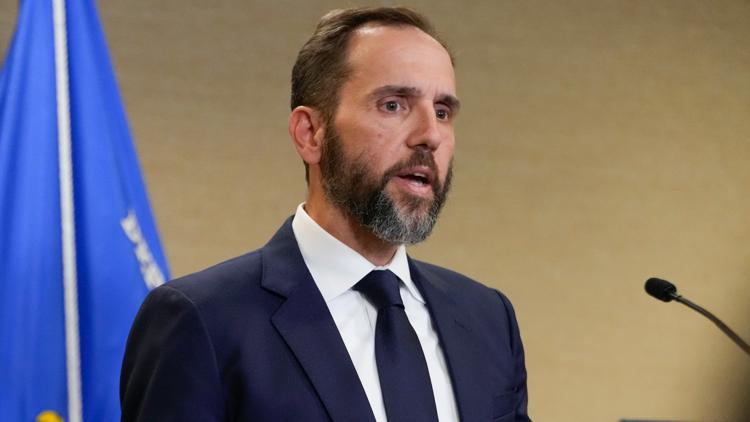The Latest: Special Counsel Files Updated Indictment Against Donald Trump

Special counsel Jack Smith has filed a new indictment against former President Donald Trump, focusing on his attempts to overturn the 2020 presidential election. This updated indictment maintains the criminal charges but refines the allegations in response to a recent Supreme Court ruling that grants broad immunity to former presidents.
The revised indictment omits a section related to Trump’s alleged misuse of the Justice Department’s law enforcement powers in an effort to reverse his election defeat. The Supreme Court’s opinion, which granted Trump immunity in this regard, prompted the adjustments in the case.
This development marks the beginning of efforts by prosecutors to comply with the Supreme Court’s decision, which is expected to lead to significant changes in the allegations against Trump. The case, frozen since December pending the immunity appeal, will resume with a status hearing next week.
Trump, in response to the new indictment, criticized it as a “desperate” attempt to revive a “Witch Hunt” against him. He called for an immediate dismissal of the case, claiming it mirrors the issues of the previous indictment.
The special counsel’s office states that the grand jury issuing the updated indictment had not previously heard evidence in the case. It explained that the new charges reflect efforts to adhere to the Supreme Court’s directives and rulings.
The central revision in the updated case pertains to Trump’s interactions with the Justice Department. The original indictment detailed Trump’s alleged efforts to involve the department in his election dispute, including plans for sham investigations and false claims of election fraud.
The revised case no longer implicates former DOJ official Jeffrey Clark as a co-conspirator. The Supreme Court’s verdict emphasized the immunity of presidents in their dealings with the Justice Department, thereby excluding such allegations from prosecution.
Despite these changes, the new indictment still includes striking allegations involving Trump’s involvement in a scheme to enlist fraudulent electors and pressure Vice President Mike Pence to reject legitimate electoral votes. The case also addresses Trump’s actions during the Capitol riot on January 6.
Continued legal proceedings will determine the extent of official conduct protected from prosecution in light of the Supreme Court’s ruling. The case raises questions about immunity for presidential actions and the need to overcome such presumptions.
While the majority of justices supported the ruling, Justice Ketanji Brown Jackson dissented, expressing concerns about immunity in the criminal justice system. The implications of this case extend beyond Trump’s legal challenges, highlighting broader issues of executive power and legal accountability.




